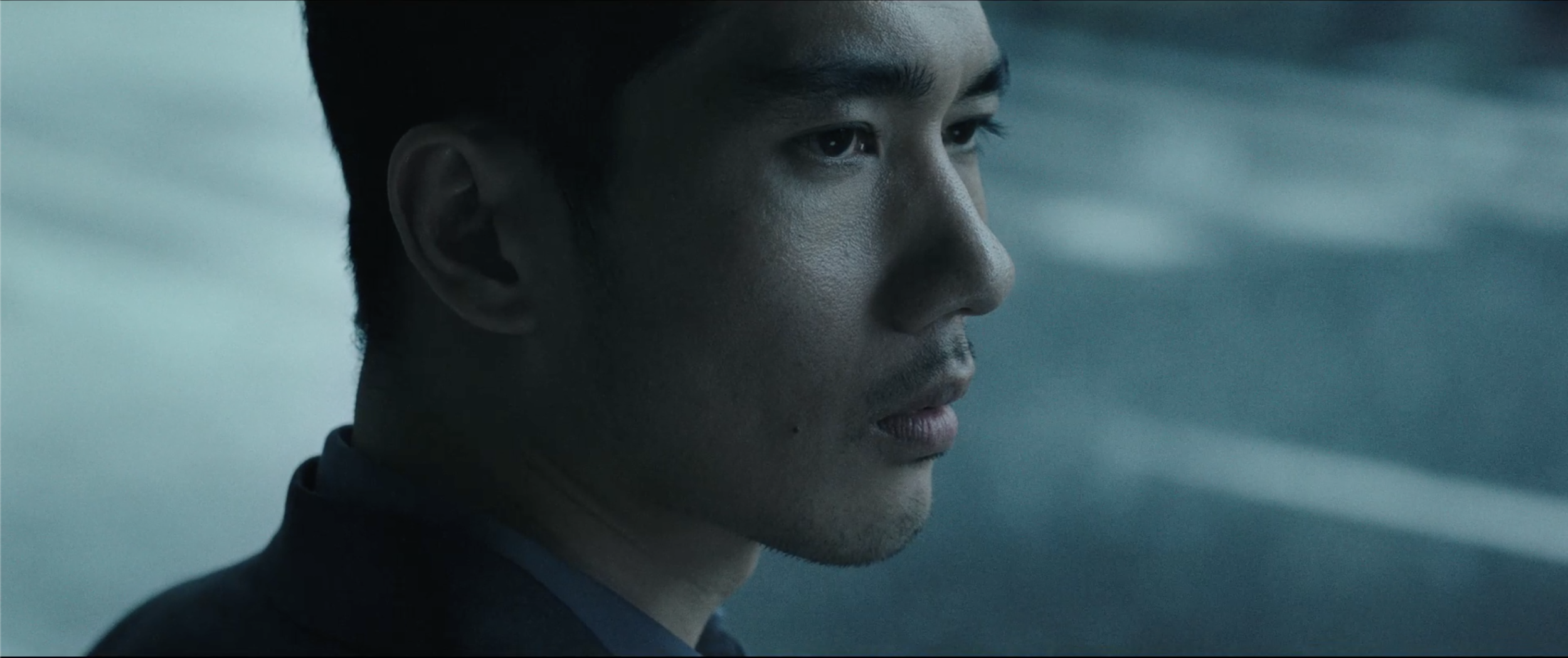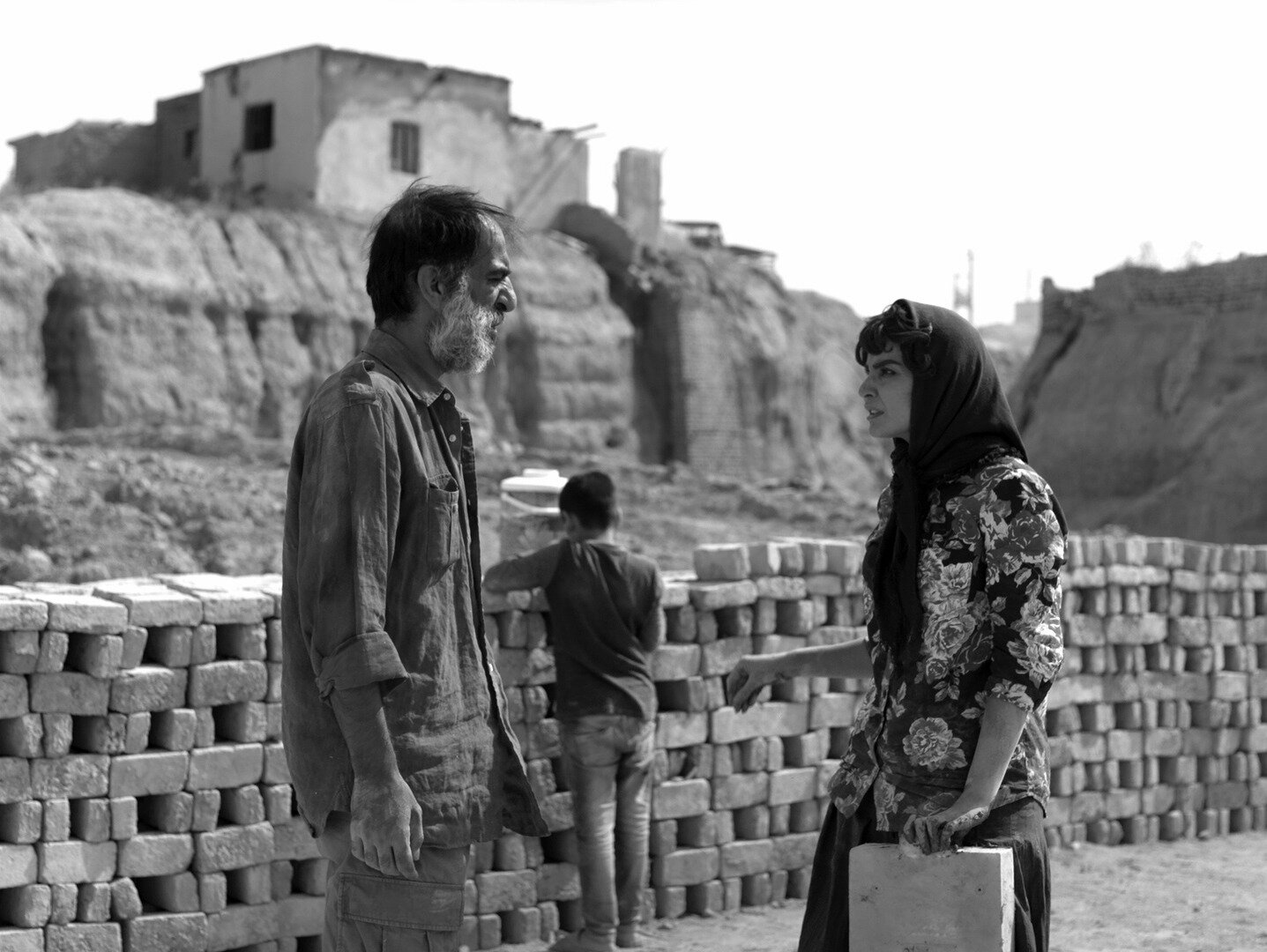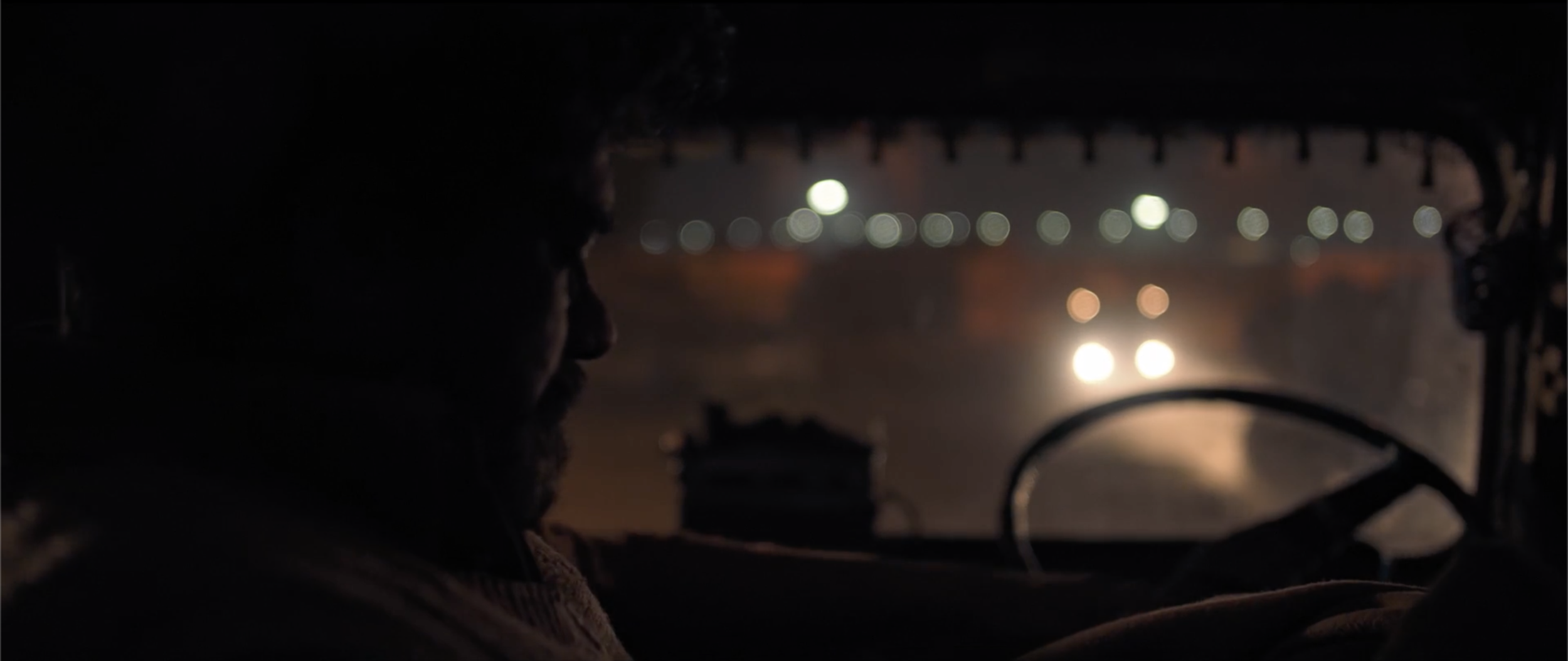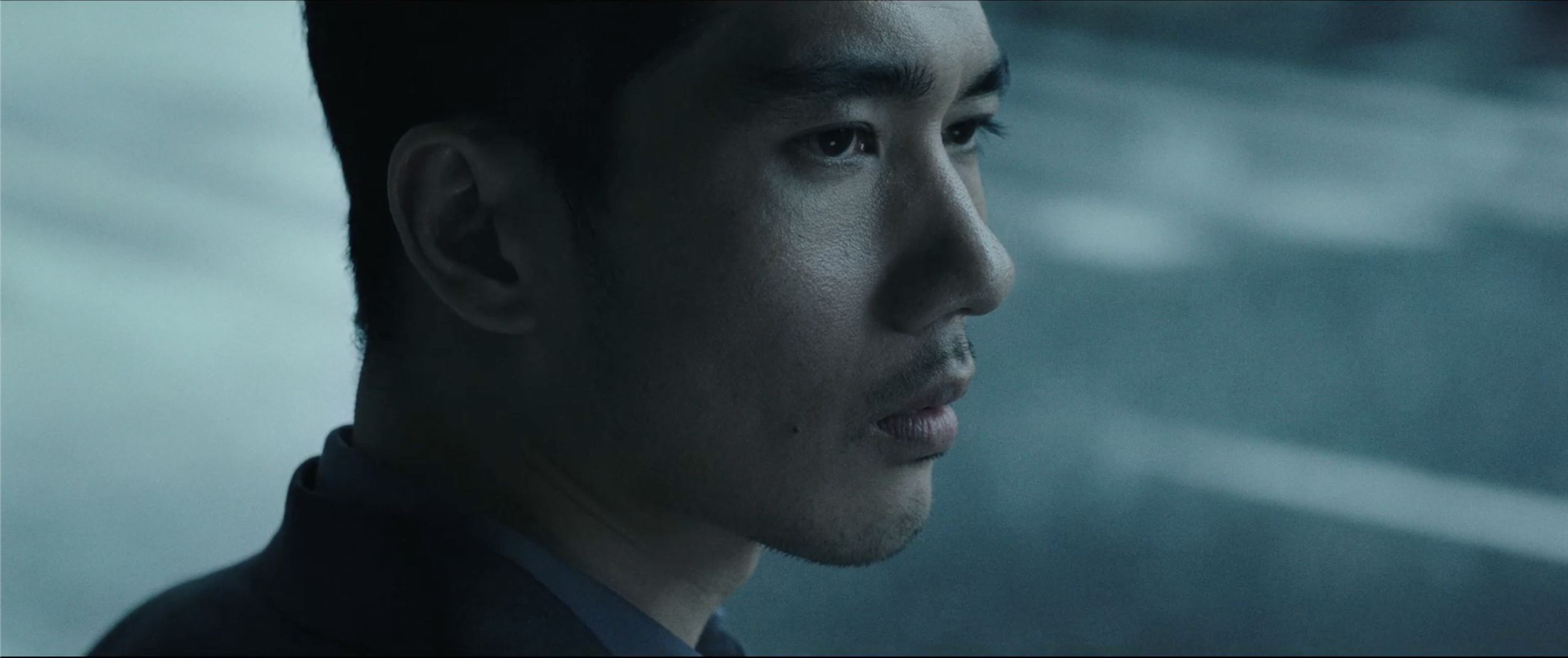Night in Paradise (Nak-won-eui-bam)
Night in Paradise – Nak-won-eui-bam
Directed by Hoon-jung Park
Starring: Seung-Won Cha, Tae-goo Eom, Yeo-bin Jeon, Ki-young Lee, Ho-San Park
Country: South Korea
Year: 2020
Author review: Roberto Matteucci
Click Here for Italian Version
"He thinks he is in a movie."
South Korea's economic development began in the 1970s and 1980s and transformed Korean society. Financial improvement has not devalued the Confucian tradition of which the civilization of the Asian country is imbued. The characteristics are the prevalence of group, respect for authority, of the father, relationship in the organization, and consequent devotion to the boss.
There is a criminal aspect. With the growth of GPD, even Mafia families have had peremptory progress, maintaining a Confucian structure too. Members have the utmost deference for the leader and they follow his fate for better or for worse.
If someone did something bad to Mafia family, there would be only one answer: revenge.
Many brilliant films recount the vendetta in Korea such as Park Chan-wook's Lady Vendetta and Old Boy, Kim Ki-duk's Pietà. The Korean vengeance resembles a heron, patiently waiting for prey. In fact, they never make a gesture of impulsive anger. Instead, It is an elaborate, precise solution, that hurts feelings, psychology and physique. Like the mother of the movie Pietà. Her son killed himself for the threats from the money collector of a usurer. Later, he pushes him to become aware of his brutality and destroys him with the pain of losing her. Meticulous but effective and cruel plan.
In Pietà the avenger is the mother, in Moebius, she is a girl, who cuts off her rapist's penis, in Lady Vendetta she is a raped student. They are all women. Is Korean revenge a woman? Can only women perform primitive justice? Or are only women able to devise the most detailed and evil vendettas?
The theme of Korean society is seen through the harsh representation of a battle among Mafia groups. Together with the subsequent heinous revenge, are the characteristics of the film Night in Paradise – Nak-won-eui-bam by Korean director Hoon-jung Park presented at the 77th Venice Film Festival.
Tae-gu is a powerful member of Mafia. He is young, is handsome, but is alone. The only affections are his sister and the little niece. However, Tae-gu made a mistake by approaching a leader of an enemy clan, and the feud is terrible: sister and niece are killed in a car accident.
Tae-gu, with the help of the clan chief, unleashes a bloody punishment in a sauna. To avoid further retaliation, his boss suggests him to take refuge on the enchanting Korean island Jeju, protected by Kuno and his niece Jae-yeon. The adolescent Jae-yeon has a deadly disease and is dying. The uncle tries to find the money to cure her, even sells weapons to ruthless individuals.
Nevertheless, in the sauna massacre, the opposing leader survived. Now he wants retaliation, he wants the culprit "then how do we resolve this situation?"
Tae-gu will become the target of a fierce hunt. The clans join in the pursuit but have not calculated the personal and psychological contexts of Tae-gu and Jae-yeon. Their alliance causes a bleeding reaction.
The film talks about the Korean civilisation in the worst dimension: Mafia. It is a shared perspective with many stimulating masters of the genre.
Takeshi Kitano depicts the yakuza, as a modern transposition of the ancient samurai, which reflect the honour and pride of Japan.
John Woo is committed to
"... create a modern, contemporary character, which includes elements of tradition; policeman or criminal must embody the spirit of a modern Chinese knight." (1)
Johnny To uses fluttering bullets, which acquire their own lives to create a real world.
In every one, including Hoon-jung Park, the interpretation of noir fiction is the narrative of a country – Japan, China, Hong Kong, South Korea – through banditry. Violence and Mafia allow to have a hypertrophy description of the characters and gives the peculiarity of perceiving the reality seen from a magnifying glass.
Introspective aspects are equally important. Betrayal, vengeance, infamy, ferocity, but also loyalty, love and human behaviour when life is very short.
The director, in the video press conference, highlights an interesting idea about the film, the location, Jeju island. Jeju is a large island to the south in the Korean Strait. Lonely Planet defines it:
“Jeju-do (제주도), Korea’s largest island, has long been the country’s favourite domestic holiday destination thanks to its beautiful beaches, lush countryside and seaside hotels designed for rest and relaxation.
There’s plenty on Jeju-do to appeal to those who prefer to be active. Hike up South Korea’s highest mountain, Halla-san, or climb the incredible tuff cone Seongsan Ilchul-bong, rising straight from the sea, to watch the sun rise from the ridge of a crater. For a less-demanding nature experience, meander along one of the Jeju Olle Trails and explore tangerine-trimmed country roads, jagged coasts and narrow lanes dotted with cottage-style homes made from black lava rock. The ocean is never far away, so plunge into blue seas to view coral as colourful as the sunsets and dig into Jeju-do’s unique cuisine, including seafood caught by haeneyo (female free divers).” (2)
It should be a great place, both for Lonely Planet and for Hoon-jung Park, who said, using a hyperbola:
"... Jeju is one of the protagonists of the film. I wanted to say how beautiful this island was. But I did just for 1% because its natural beauty is immense. Then, the two protagonists are really two desperate people, almost arrived at the end of life. But their last days I wanted to project them in a beautiful place, almost a paradise." (3)
Therefore, the island is one of the protagonists and is a paradise to spend the last period of life.
How to describe Jeju? Bright, seductive, peaceful, anthropomorphic, lush, magniloquent, ideal for holidays and to hide. Sensual for immaculate vegetation. Vigorous in abundant naturalism, superb and vain; no one can hit it. Surely, she is fearful of God, because divine justice takes place in this territory.
The supporting actors are Tae-gu and Jae-yeon.
Tae-gu is sexy, every shot is an exaltation of his charm. A beauty even moral, he does not hesitate to defend or attack, indifferent from risks. His personality changes. As a loyal executor of the clan, he first becomes an implacable avenger, then a weak prey, indifferent to life. Cynicism induces him to a seraphic calm also in the most dangerous circumstances, until he becomes inexorable.
Jae-yeon is beautiful. She lives on the island's Eden with her uncle. Her destiny is marked by illness. Despite having moments of weakness and depression, she is strong and energetic. Her determinacy evolves into gruesome anger.
The two initially challenge each other. Jae-yeon provokes him - "What bore are the old men" - mocks him, but, as always, the initial aversion turns into love, into a unique value. Both are wary. Both are disillusioned. Both are Saturnine, melancholy and sad. Most importantly, both are self-destructive. They have a timer activated towards permanent destruction. However, they are both not afraid. Their love is disenchanted, without any lust, although Jae-yeon invited Tae-gu to sleep together, but offended, he refused. The director agrees with Tae-gu's choice. At the press conference, he demonstrates his characters:
"First, I didn't think of a female role or a male role, but rather as a person who knows has to die. She has a short life, so she is not afraid of anything, she has nothing to lose. Earlier, I described a person who has no wish for a living, who has no interests, almost unconscious and without the pleasure of life. After that, she has to end her life, then in front of any event she makes the decision, she is stronger than her character. This is not determined by the male or female role but just examining the mood of the character." (3)
If the role, female or male, is not indispensable, sex is superfluous. If there are just a few days left to die, sex can be a medicine? Or rather, revenge is more urgent than sex?
The underlining of the characters is fundamental.
Fading in black on Tae-gu, he is talking on the phone when his sister and niece are murdered. On the street, there isthe car with the detail of the iPad just bought for her niece. Tae-gu's face is cold, unable to show feeling. He has an intense sensibility.
The author loves the actor's deep gaze. He is very handsome; his eyes are unhappy but determined. He is a brave man. The director repeats the same frame numerous times; besides, he adds a significant shot-reverse-shot. Tae-gu eats with his chief. They are chatting in the restaurant at the same table. Separated there are the other components, sitting on a lower level, dressed in black, are extras but elegant.
Tae-gu continues to pose and Hoon-jung Park rewards him with concentrated closeups. He's a star, a star of evil.
An equal sequence when Tae-gu and Jae-yeon are sitting in front of the family home where they are guests. Tae-gu is no longer solitary. Misfortune gives him a limited time of harmony with her. And the girl trusts him and narrates her complicated life.
Tae-gu is attractive even when he is dirty with the blood of his victims. The gaze is imperturbable, aware that he has taken an irreversible action.
Juje is depicted by aerial shots on hills, beaches, rocks on the sea, on long roads travelled by car in the lush green. The island appears deserted, suffers from loneliness, identical to that tormented young. Everywhere there are tranquillity and quiet; enlarge in comparison with a Seoul full of palaces, lights and traffic.
Hoon-jung Park is an excellent filmmaker mostly interested in the individual vision of the protagonists, considering among them, according to his theory, the island. It is a smart choral observation. In Night in Paradise, the gangsters move like in a dance, they are choreographies dynamic. Choreography is in the chase and shooting scenes. Choreography is the ingenious background for guys, it gives an easy tone, like cartoons. Brawls have violent punches, during the firing, there are millions of bullets, the death comes with difficulty, with grimaces and wild twists.
The ground-level-shot is the most used and the most refined, while with the two-shots materializes their humanity.
The closeups depict the soul, the peace, often in backlight. The timing of introspection is slow but it never loses the action.
There are endless trips up and down the island, the fish soup, the favourite dish for both.
The ethical element may seem non-existent due to the Tae-gu's Mafia job, but in reality, the characters have moral integrity. The film is linear, realist, formal; surreal only in choreographic tones.
In the uncle's warehouse, shining rays of the sun enter from the holes provoked by bullets, creating a drawing with special fantasy. The atmosphere and rhythm are fast and exciting, making the film sumptuous.
The film is an ordeal, justifying a hidden religiosity. God's judgment is transferred, but the castigation for the murderers is certain. The punishment of the divine will is intransigent and fair. And the avenger is a woman.
Marco Bertolino e Ettore Ridola, John Woo. La violenza come redenzione, Le Mani, Recco, luglio 2010, translated by author



















Directed: Roger Michell
Starring: Helen Mirren, Jim Broadbent, Matthew Goode
Country: UK
Year 2020